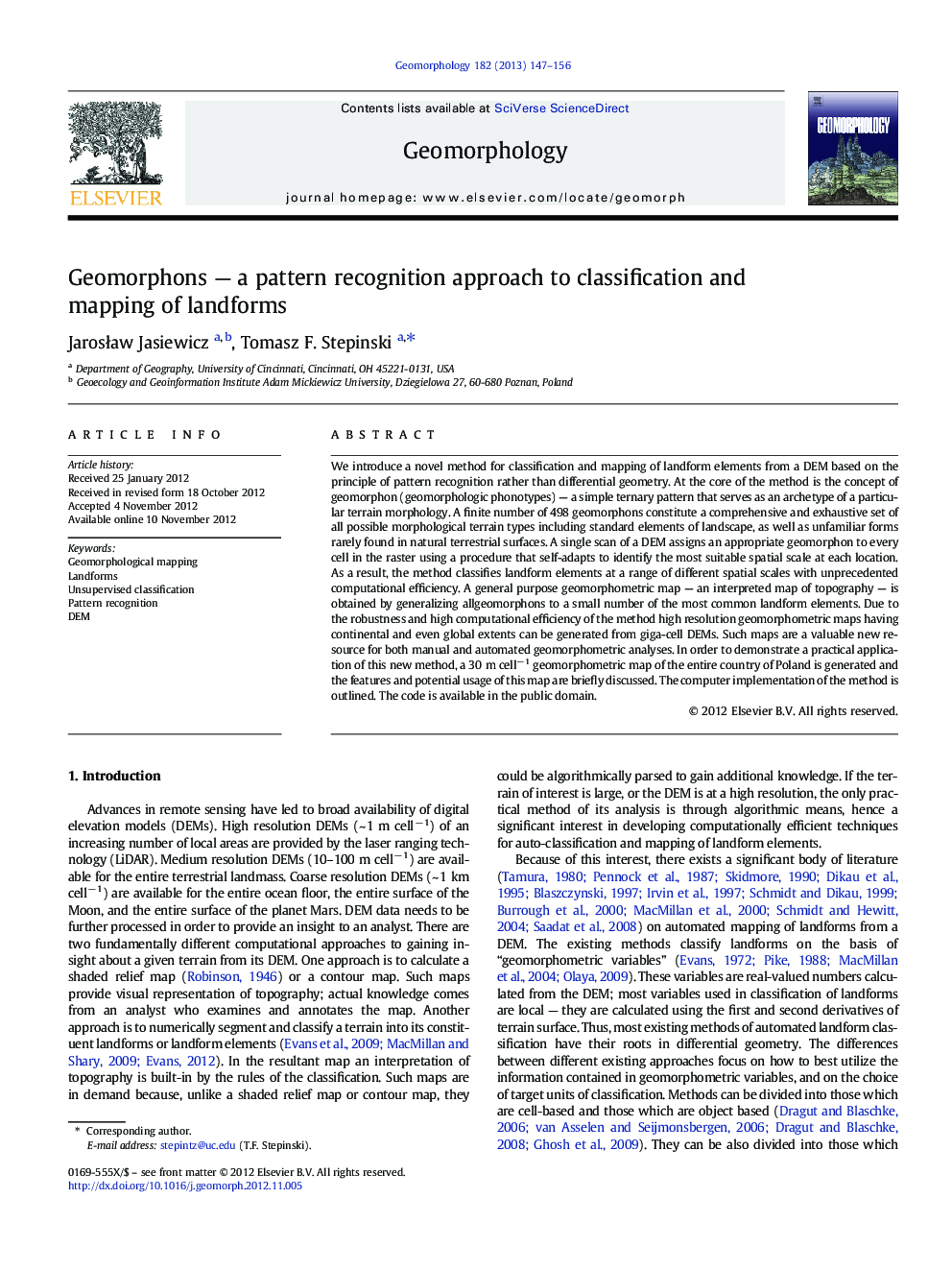| کد مقاله | کد نشریه | سال انتشار | مقاله انگلیسی | نسخه تمام متن |
|---|---|---|---|---|
| 4685042 | 1635467 | 2013 | 10 صفحه PDF | دانلود رایگان |

We introduce a novel method for classification and mapping of landform elements from a DEM based on the principle of pattern recognition rather than differential geometry. At the core of the method is the concept of geomorphon (geomorphologic phonotypes) — a simple ternary pattern that serves as an archetype of a particular terrain morphology. A finite number of 498 geomorphons constitute a comprehensive and exhaustive set of all possible morphological terrain types including standard elements of landscape, as well as unfamiliar forms rarely found in natural terrestrial surfaces. A single scan of a DEM assigns an appropriate geomorphon to every cell in the raster using a procedure that self-adapts to identify the most suitable spatial scale at each location. As a result, the method classifies landform elements at a range of different spatial scales with unprecedented computational efficiency. A general purpose geomorphometric map — an interpreted map of topography — is obtained by generalizing allgeomorphons to a small number of the most common landform elements. Due to the robustness and high computational efficiency of the method high resolution geomorphometric maps having continental and even global extents can be generated from giga-cell DEMs. Such maps are a valuable new resource for both manual and automated geomorphometric analyses. In order to demonstrate a practical application of this new method, a 30 m cell− 1 geomorphometric map of the entire country of Poland is generated and the features and potential usage of this map are briefly discussed. The computer implementation of the method is outlined. The code is available in the public domain.
Journal: Geomorphology - Volume 182, 15 January 2013, Pages 147–156